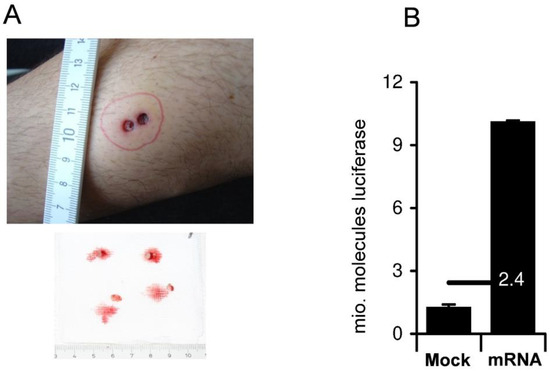Vaccines, Therapies and Research Based on Synthetic mRNA
A project collection of Cells (ISSN 2073-4409). This project collection belongs to the section "Cell Methods".
Papers displayed on this page all arise from the same project. Editorial decisions were made independently of project staff and handled by the Editor-in-Chief or qualified Editorial Board members.
Viewed by 5295Editor
Project Overview
Dear Colleagues,
The COVID-19 pandemic has highlighted the relevance of synthetic mRNA (in vitro transcribed “ivt” mRNA) for the rapid development and implementation of safe and efficacious vaccines. This success fosters further utilisation and optimisation of ivt mRNA vaccines. However, the medical potential of ivt mRNA is not restricted to vaccines but extends to “protein replacement” therapies whereby the ivt mRNA is utilised in its non-immunostimulating forms to code for therapeutic proteins. In addition, ivt mRNA that can be used for diverse methods of DNA engineering (e.g., meganucleases, TALEN, CRISPR/CAS) is being exploited both for fundamental research and clinical applications that are new avenues in the treatment of, for example, genetic diseases.
It is the goal of this Special Issue to present the potential of ivt mRNA in medicine (optimisation and utilisations of ivt mRNA) and in research.
We look forward to your contributions.
Prof. Dr. Pascolo Steve
Guest Editor
Manuscript Submission Information
Manuscripts should be submitted online at www.mdpi.com by registering and logging in to this website. Once you are registered, click here to go to the submission form. Manuscripts can be submitted until the deadline. All submissions that pass pre-check are peer-reviewed. Accepted papers will be published continuously in the journal (as soon as accepted) and will be listed together on the collection website. Research articles, review articles as well as short communications are invited. For planned papers, a title and short abstract (about 100 words) can be sent to the Editorial Office for announcement on this website.
Submitted manuscripts should not have been published previously, nor be under consideration for publication elsewhere (except conference proceedings papers). All manuscripts are thoroughly refereed through a single-blind peer-review process. A guide for authors and other relevant information for submission of manuscripts is available on the Instructions for Authors page. Cells is an international peer-reviewed open access semimonthly journal published by MDPI.
Please visit the Instructions for Authors page before submitting a manuscript. The Article Processing Charge (APC) for publication in this open access journal is 2700 CHF (Swiss Francs). Submitted papers should be well formatted and use good English. Authors may use MDPI's English editing service prior to publication or during author revisions.
Keywords
- synthetic mRNA
- ivt mRNA
- mRNA vaccines
- mRNA therapies
- ivt mRNA-based gene editing







